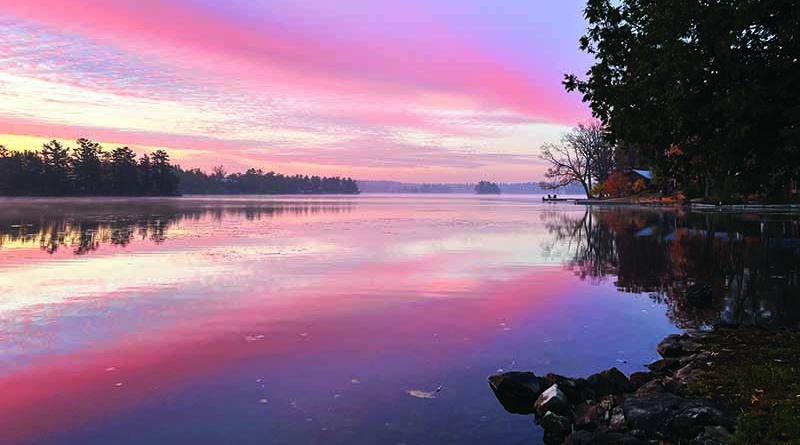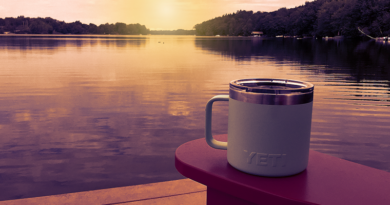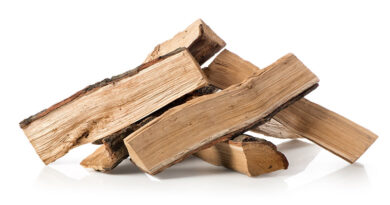Cottage Memories: Chronicles of A City Boy’s Life In The Country
Water Awareness
By Craig Nicholson
Water is essential to cottaging. Without it, diving, skiing and swimming would be painful. There’d be no lake to build beside. Docks would be land-locked and boats would have nothing to float on. Fish would have legs and loon cries would be truly forlorn. Like many, I took my water for granted. Except when urgently trying to hold it in. Then I bought a cottage and discovered water’s many kinds…
My favourite is the snow kind, which was mostly a no-show this winter. But lake water is most loved by cottagers. That’s the large wet spot your cottage overlooks. This kind of water is used for recreation, travel and inflating property values. It’s also where fish swim, beavers defecate, worms drown, plants rot, ill-informed people bathe and organisms die. Which explains why I prefer another kind of water to drink.
Although my lake water tested positive, holding a full glass up to the light revealed a plethora of swirling particles. Maybe I should have washed the glass first. But wanting to drink, not chew, I installed filters. Now my tap yields the drinking kind, the bathing kind and the cooking kind. The wife wishes I’d kindly leave water classification to experts. But then how could I finish this column?
Standing water is like sitting water except taller. These are variations of the stagnant kind that produces mosquito hordes. This inert water has a tendency to be stale-dated, of slimy consistency, and coloured like the Incredible Hulk just bathed in it. It’s also one step removed from the swamp kind, which is gaseous, nauseous and yucky. The wife says, just like me after a chili pig out.
Moving water is how it gets around. Run-off, streams, creeks, rapids and falls. Also, flooding, pumping, splashing, and carried in canteens. The moving kind is generally a good thing unless it breeds black flies, seeps into your basement, or makes you seasick.
Dam’d water is not the opposite of holy water. Beavers, hydro, flood control and locks are all dam causes. Which produce high water on one side and low water on the other – two kinds not so bad alone, but dangerous when unexpectedly mixed. Or when low water makes that first step from dock to boat like falling off a roof. Or the boat gets stuck on the muddy bottom. Or when cottagers fight over water levels – it’s tough to have both high and low water simultaneously.
Well water doesn’t mean it’s been cured. Many folks bypass the lake kind to get their drinking kind from the well kind, also known as the ground kind. Usually reliable unless it runs dry, is polluted by excess run-off, or the submersible pump breaks down. If uncovered, well water can become the stinky kind as one neighbour discovered after an itinerant skunk fell in. Talk about Pepé La Pew!
During winter, most water becomes the frozen kind. It can acquire the power to shift boathouses, crush docks, raise pressure cracks, support ice fishing huts and jeopardize unwary crossers. It also connects snowmobile trails and allows seasonal access to different places. The wife prefers her ice water melting in a drink, instead of melting her into the drink.
Rain water comes from clouds. Or is wrung out of clothes after being caught in a downpour. It pools on tarps, in depressions and in open containers, causing mud puddles, drown mice, more mosquito breeding and even road rutting. Acid rain is a kind that was more prevalent before Brian Mulroney’s 1991 Canada-U.S. treaty. Emergency water is the kind I want pumped from a fire hose. Much better than a bucket brigade – that’s when it becomes heavy water.
Yes, water is far more complex than I imagined. The wife says that’s because I‘ve never had to work to get it. Or find it. Or keep it. Our water’s just always been plentiful for the taking. But now that I’m more water aware, there’s one kind I’m trying to prevent. The polluted kind.
Craig Nicholson is a long-time Kawarthas cottager who also provides tips and tour info for snowmobilers at intrepidsnowmobiler.com and for PWC riders at intrepidcottager.com.




